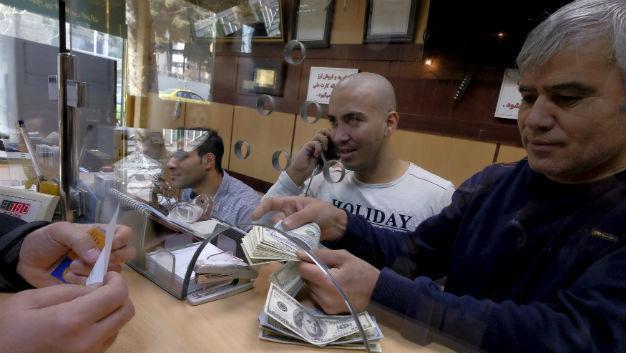Iran’s lack of int’l market access ‘hampers plan to unify foreign exchange rates’
LONDON - Reuters

REUTERS photo
Iran’s efforts to unify its official exchange rate with the market rate have been stymied by a lack of progress in re-integrating the country in international capital markets, Central Bank Governor Valiollah Seif said on May 19.Iran has a formal exchange rate set by the Central Bank and an unofficial market rate used more freely.
Policymakers have said previously that they planned to unify the two, with the process originally due to start about six months after the country implemented a deal with major world powers in January aimed at limiting its nuclear activities in return for having sanctions lifted.
“It was our expectation...to be able to connect to the international markets and utilize all the resources available during a reasonable period of time. But unfortunately it did not happen as yet as we expected,” Seif told Reuters in an interview on the sidelines of the Euromoney Iran conference.
“It is a pre-condition to achieve the unification to have access for our foreign exchange resources and ability to move freely these resources around the globe... We would only embark on exchange unification when we are certain about the possibility of sustaining the stability in the foreign exchange market.”
In January, world powers led by the United States and the European Union lifted most sanctions on Iran in return for curbs on its nuclear program.
However, some U.S. sanctions remain in place and U.S. banks remain prohibited from doing business with Iran directly or indirectly because Washington still accuses Tehran of “supporting terrorism.” That has also deterred European institutions for fear of facing U.S. legal problems.
Seif, speaking through a translator, said that he would have loved to see access to the global financial system happen already.
“According to the commitments stipulated in the JCPOA we would have loved to see it yesterday,” he said, referring to the formal title of the nuclear deal, the Joint Comprehensive Plan of Action.
“The other parties are not feeling responsible enough to deliver on their commitments. We expect that its delay will be compensated sooner rather than later,” he said, adding the United States had a “specific role” to play in this process and countries could not just pick and choose which bits to implement.
Asked which institutions and countries had shown the most interest in forging closer links with Iran, Seif said Iran’s counterparties in the oil market and for Iranian exports were the ones Tehran was concentrating on.
He named Japan, Korea, Italy, Austria and Spain, but declined to give any further details.
“We think we will see better results in the near future.”
Iran’s economic growth has been well below potential rates due to the impact of sanctions, low energy prices and high interest rates. But Seif said he expected the annual growth rate to reach 8 percent over the next five years, although not this year.
He also said the country was on track to bring inflation, which is currently at around 11 percent, down to single digits during the financial year ending next March.
“It is absolutely plausible for Iran to achieve high growth for a high period of time because of the available resources and its geopolitical position. Given this capacity, it is really only (necessary) for conditions to be right to achieve this.”
















